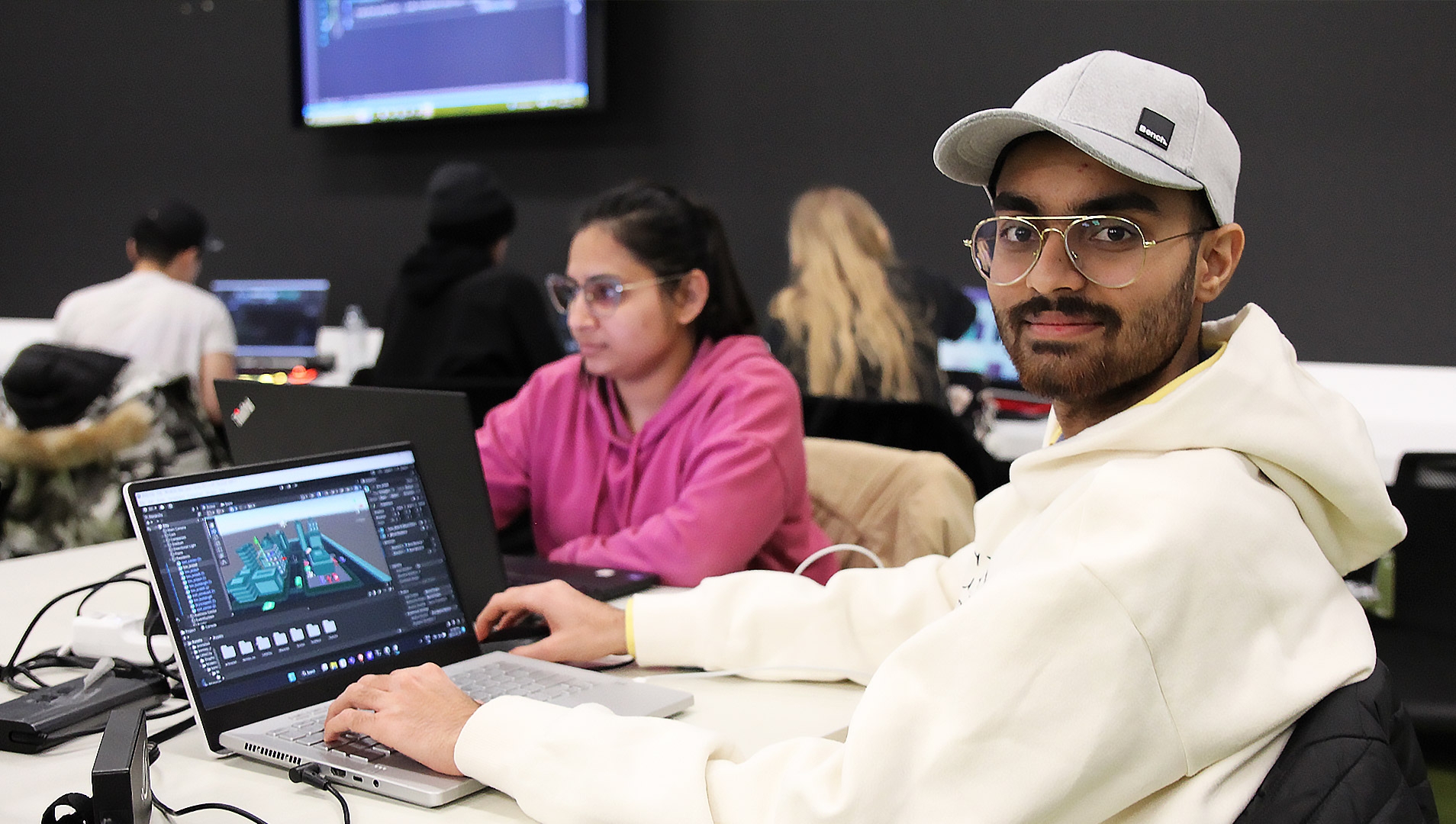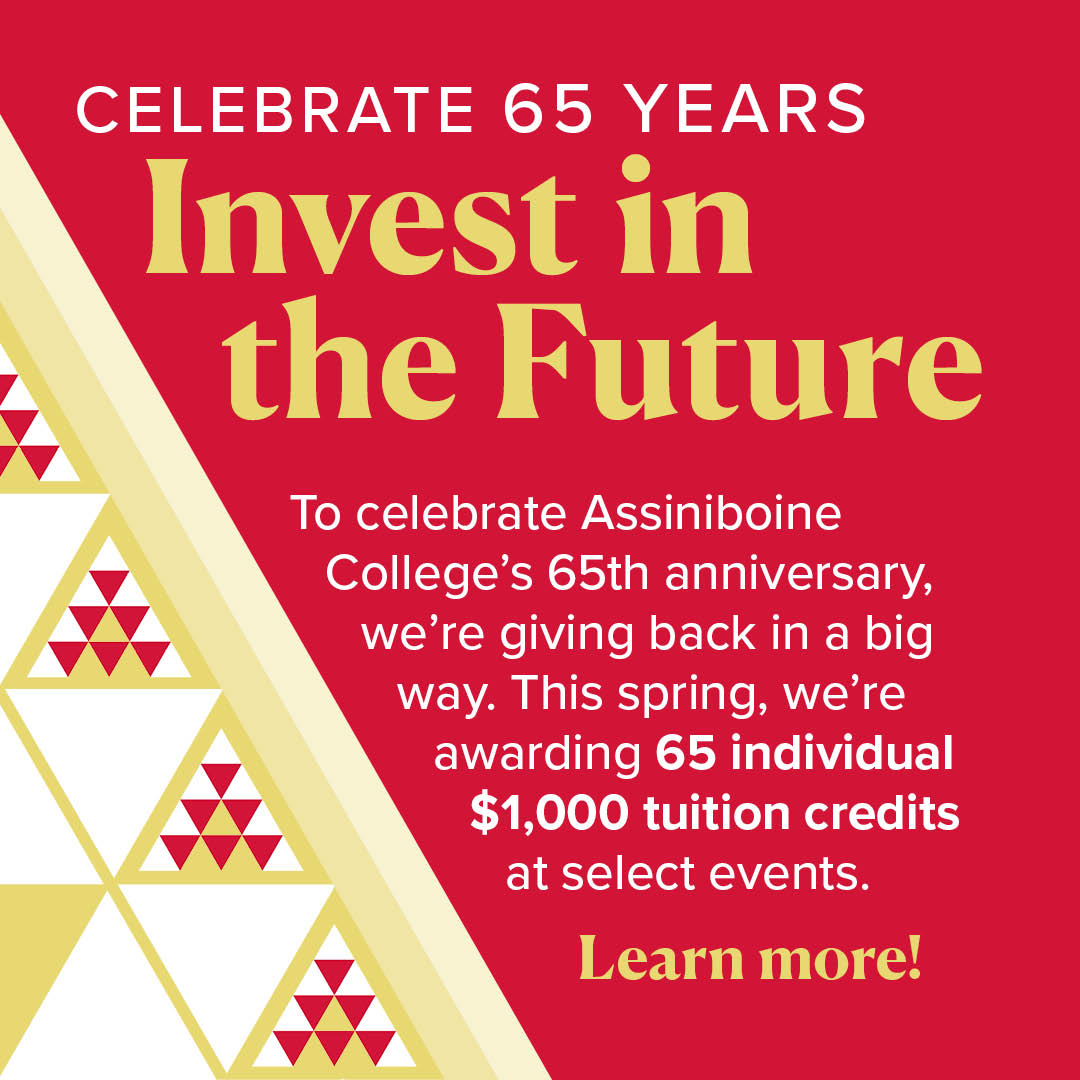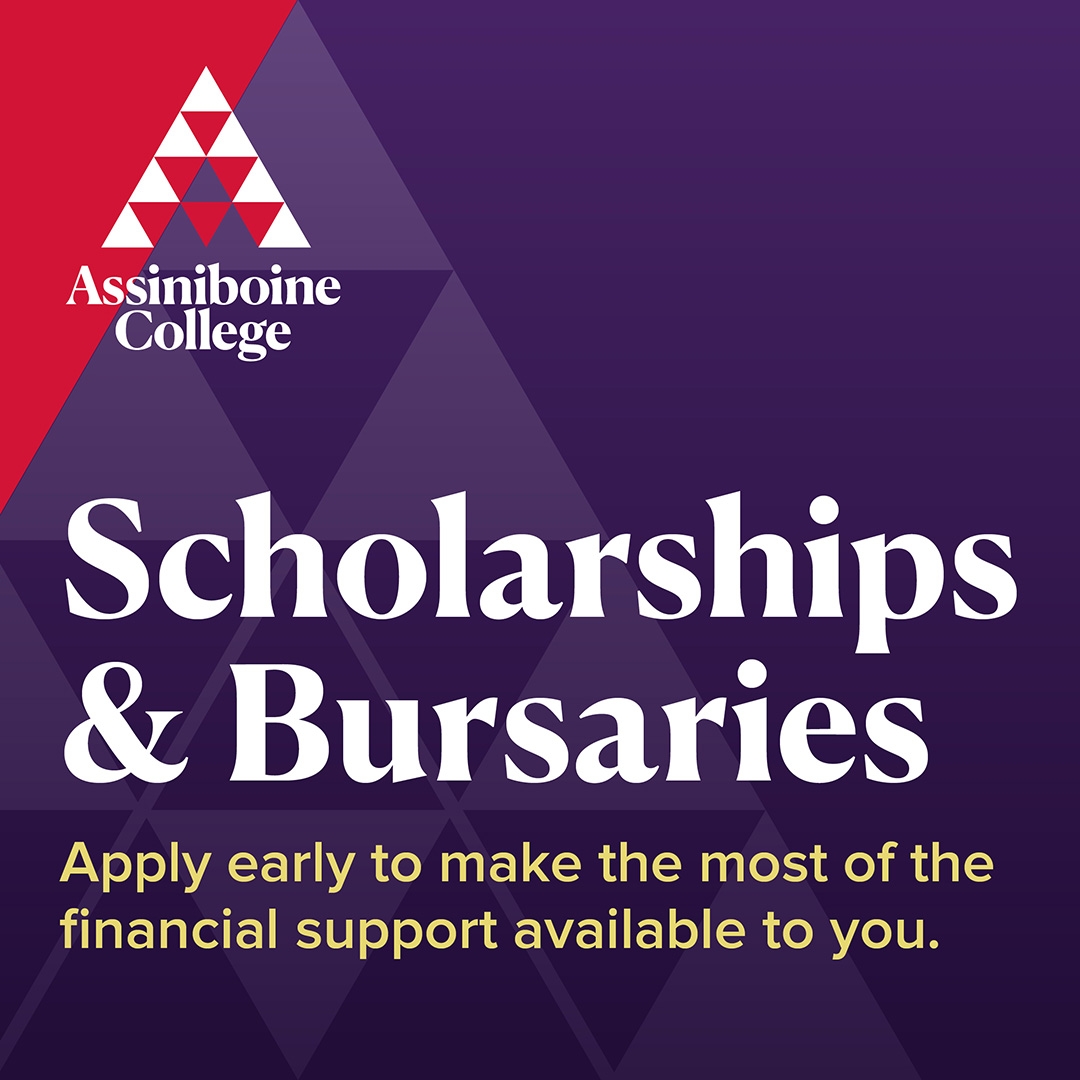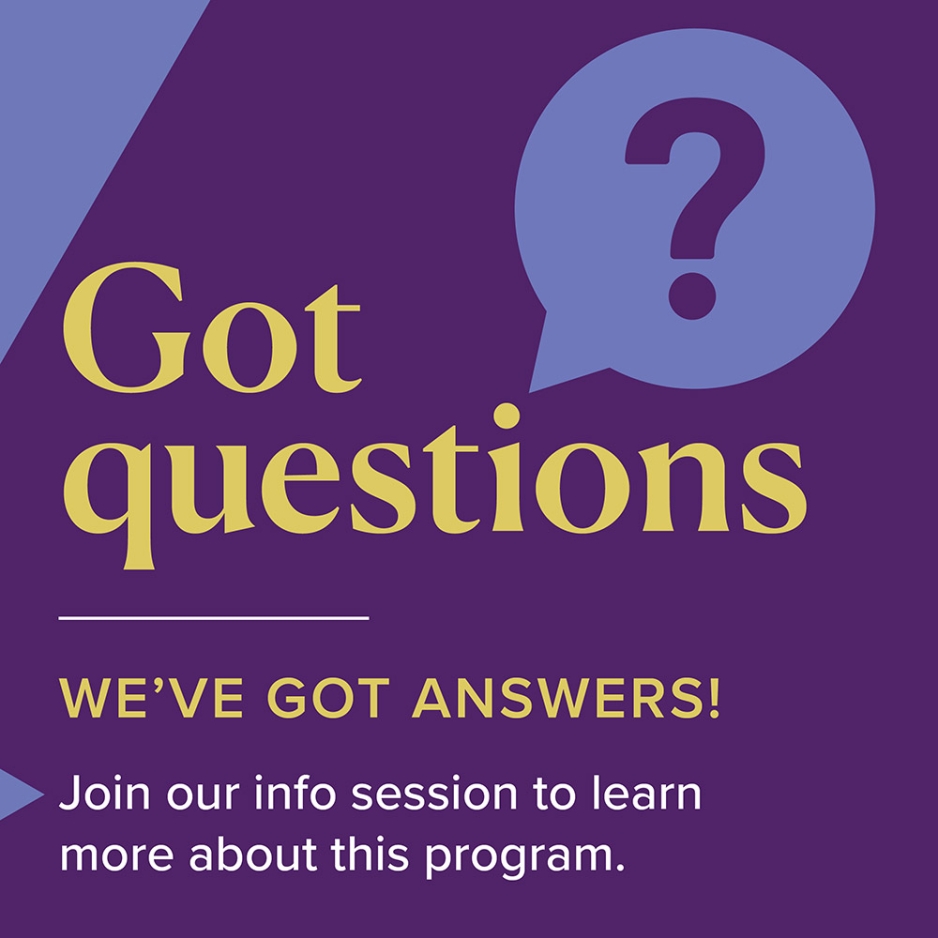Web and Interactive Development
Overview
Assiniboine’s two-year Web and Interactive Development diploma program prepares graduates for a career in the multimedia field.
Graduates of the Web and Interactive Development program work in entry-level opportunities as web developers, interactive and mobile application developers, AR/VR and game developers. Prospective employers include web development companies, online marketing agencies, large or small game development studios, and educational software companies. Entrepreneurs find additional options with freelance contracts. Graduates may apply their skills in the areas of digitally based business solutions, consulting and web-delivered training.
Classes for this program are taught at Assiniboine's Centre for Creative Media - a cutting-edge, multi-functional space with state-of-the-art equipment.
Program Learning Outcomes
- Apply emerging visual technologies, including virtual, augmented and mixed reality applications, to create impactful and memorable user experiences.
- Use back-end and front-end programming languages and tools to design and create responsive and dynamic web content.
- Effectively collaborate with team members, clients, and stakeholders to deliver creative and results-oriented interactive media solutions, while demonstrating effective communication skills, problem-solving skills, and the ability to work well in a team.
- Create and customize interactive visual content that is accessible, engaging and interactive for a diverse range of audiences and on different platforms and devices.
- Use critical thinking skills to analyze audience and market needs and develop content that is relevant and engaging to target audiences.
- Apply critical thinking and problem-solving skills to address challenges and develop solutions in a fast-paced environment.
- Complete work within industry standards and best practices, including legal, ethical and accessibility considerations.
- Adapt to changing technologies and trends, demonstrating a willingness to learn and grow as a professional in a dynamic and evolving industry.
- Demonstrate professionalism and self-awareness while giving and receiving constructive feedback to improve their skills, knowledge and professional practice.
Examples of what graduates from this program can do:
- Utilize emerging visual technologies, such as virtual, augmented, and mixed reality applications, to create impactful and memorable user experiences.
- Design and create responsive and dynamic web content using front-end and back-end programming languages and tools.
- Collaborate effectively with team members and clients to deliver creative and results-oriented multimedia solutions.
- Translate visual content to make it accessible, engaging and interactive for diverse audiences.
Success Factors
You might be a good fit for this program if you would enjoy:
- Coding or programming
- Exploring how technologies work
- Developing new and innovative solutions to complex problems.
- Learning new tools and techniques and growing as a professional.
- Merging technology and creative expression.
- Working collaboratively with team members to create high-quality products.
A valid driver’s license and access to a vehicle is strongly recommended given the potential need to travel for practicum placement.
The industry and program environment require individuals to:
- Be reliable, punctual, and regularly attend work.
- Communicate effectively with team members and clients.
- Continuously seek and be open to feedback and critiques.
- Listen to direction and act on that accordingly.
- Maintain professionalism, attention to detail and quality of work under tight deadlines and in a fast-paced environment.
- Manage projects and time effectively, meeting deadlines and delivering work within industry standards and best practices.
- Perform static tasks, such as sitting and using a computer.
- Perform physical tasks, such as operating and maintaining equipment of various sizes.
- Use and keep up-to-date with changes in technology, and be willing to continuously learn and adapt.
- Work in a collaborative team environment or independently as the situation requires.
- Take ownership of your work and be accountable for meeting deadlines, communicating progress, and resolving problems independently as they arise.
Interested in exploring similar program options?
We've got you covered! Here are some other great program options to consider.
Admissions
Admission Requirements
- A complete Manitoba Grade 12 or equivalent
- English 40G/40S or equivalent with a minimum mark of 65%
If you received your education outside of Manitoba, please review the equivalent admission requirements: Interprovincial or International.
English is the language of instruction at Assiniboine. All applicants educated outside of Canada or in a country not on the test exempt list are expected to meet the English language proficiency requirements.
READY TO TAKE THE NEXT STEP IN YOUR EDUCATION JOURNEY?
Start your online application today and join Assiniboine College!
DON'T MEET ADMISSION REQUIREMENTS?
If you don’t meet admission requirements, visit our Centre for Adult Learning to upgrade courses.
Careers & Connections
Career Opportunities
- Web development companies
- Online marketing agencies
- Large or small game development studios
- Educational software companies
- Entrepreneurs
- Freelance
Connections
Assiniboine has a number of agreements with other colleges, universities and professional organizations, making it possible to apply credit taken at Assiniboine to programs at other institutions. For information on agreements, see Articulation Agreements.
Tools & Supplies
Program Checklists, Textbooks, and Supplies
ASSINIBOINE BOOKSTORE
Textbooks, supplies and uniforms may be purchased at the Assiniboine Bookstore at the Victoria Avenue East Campus. Booklists, tool lists and supply lists are available from your school office 30 days prior to the start date of your program.
Technology Requirements
Students in this program are required to bring their own laptop for use on-campus. The laptop must meet the technical needs outlined by the program. See Technology Requirements for detailed information.
Courses & Costs
Costs
Estimated Program Costs (Domestic students)
| Year 1 | Year 2 | |
|---|---|---|
| Credits | 60.0 | 61.0 |
| Tuition | $3,720 | $3,720 |
| Course Fees | $1,510 | $2,040 |
| Students' Association fees (including Health Premium) | $625 | $625 |
| Estimated textbooks, tools, and supplies | $4,730 | $490 |
All fees are estimated and subject to change without notice.
Estimated Program Costs (International students)
| Year 1 | Year 2 | |
|---|---|---|
| Credits | 60.0 | 61.0 |
| Tuition | $16,140 | $16,350 |
| Course Fees | $1,510 | $2,040 |
| Students' Association fees (including Health Premium) | $625 | $625 |
| Required Health Insurance | $825 | $825 |
| Estimated textbooks, tools, and supplies | $4,730 | $490 |
All fees are estimated and are subject to change without notice. All international students must purchase health insurance. The college adds this fee to your student account and then sends your name and fee to the insurance provider on your behalf.
For more information, visit the Fees and Charges page.
Courses
To graduate with a Web and Interactive Development diploma, students must successfully complete 120 academic credits and 1 practical credit. The minimum passing grade for each course is indicated on the course outline. Course offerings are subject to change and may vary by intake.
Year One Courses
| Title | Credits/CEUs | Elective | Distance | PLAR |
|---|---|---|---|---|
Art & Design Fundamentals (ARTS-0022)In this course, students study design fundamentals like elements & principles of design, typography concepts, and layout techniques that can be applied in a variety of media. Students use theory of value, harmony and contrast to help them create unified designs that evoke emotional responses from audiences. Aspects of indigeneity are incorporated by exploring traditional indigenous colours and symbols, and their meanings. Students use design thinking and problem-based learning processes to help them acquire critical and analytical skills they use throughout the program. |
6 credit(s) | No | No | No |
Back-end Development (MEDP-0103)Prerequisites: COMP-0623 Programming Fundamentals, COMP-0624 Software Skills |
6 credit(s) | No | No | No |
Business & Entrepreneurship 1 (BUSN-0194)This course introduces students to basic practices and processes of professional development. Students learn processes and tools for project planning and management, as well as self-management of contractual work. Students propose and present projects and ideas in a clear and engaging manner. Development of self-awareness and self-regulation processes is a component of course. |
6 credit(s) | No | No | No |
College Foundations (PEDV-0356)This course improves students' ability to navigate the college experience and environment, including student's rights, roles, and responsibilities. In this course, students reflect on their skills, attitudes, and expectations and develop learning strategies to help them to become successful, resilient, and self-directed learners. The course covers topics such as success in online learning, time management strategies, learning strategies, assessment taking strategies, academic integrity, information and digital literacy, and wellness, among others. It integrates elements of student orientation. |
0 credit(s) | No | No | No |
Front-End Development (MEDP-0097)Prerequisites: COMP-0623 Programming Fundamentals, ARTS-0022 Art & Design Fundamentals, COMP-0624 Software Skills |
6 credit(s) | No | No | No |
Interactive Communications (COMM-0400)This course prepares students to convey messages clearly, directly, and succinctly for a range of audiences. A variety of texts and communication methods, styles, and structures are examined, as well as best practices and ethical considerations for each. Research and project planning skills are introduced in this course. |
6 credit(s) | No | No | No |
Programming Fundamentals (COMP-0623)In this introductory course, students are introduced to many of the common coding concepts that comprise a solid foundation in just about any programming language. Processes of project and file management are further expanded on for work in networked environments. |
6 credit(s) | No | No | No |
Software Skills (COMP-0624)This course provide an introduction and overview of the industry standard software tools used for media production. Students select appropriate strategies and tools to develop digital content. Best practices in production collaboration & management methods are emphasized. Students gain an introductory understanding of the tools necessary to edit content. |
6 credit(s) | No | No | No |
Storytelling & Content Writing (COMM-0401)Since before the birth of civilization, human beings have used stories to understand and explain the world. Today, stories are incorporated into many forms of digital communication. This course provides students with the foundational skills to craft original, compelling stories to help make an impression with audience. This course exposes students to aspects of indigeneity by exploring the history and importance of oral storytelling. |
6 credit(s) | No | No | No |
Studio Skills (MEDP-0100)This course introduces students to technical gear needed to capture and edit professional quality video, audio, and images. Focus is placed on the professional details, fundamental skills, and best practices for successfully acquiring, sequencing, and presenting media content. Students troubleshoot technical issues related to cameras, video and audio gear, as well as how to communicate amongst team members using industry terminology and procedures. |
6 credit(s) | No | No | No |
Typography & Brand (COMM-0402)Prerequisites: ARTS-0022 Art & Design Fundamentals, COMP-0624 Software Skills |
6 credit(s) | No | No | No |
Year Two Courses
| Title | Credits/CEUs | Elective | Distance | PLAR |
|---|---|---|---|---|
3D Development (ARTS-0023)Prerequisites: MEDP-0100 Studio Skills; COMP-0624 Software Skills; COMM-0402 Typography and Brand |
6 credit(s) | No | No | No |
Business & Entrepreneurship 2 (BUSN-0195)Prerequisites: BUSN-0194 Business & Entrepreneurship 1, COMM-0400 Interactive Communications |
6 credit(s) | No | No | No |
Data Visualization (MEDP-0104)Prerequisites: MEDP-0103 Back-End Development, MEDP-0097 Front-End Development |
6 credit(s) | No | No | No |
Integrative Capstone 1 - WBINV (MEDP-0108)Prerequisites: MEDP-0103 Back-End Development, BUSN-0194 Business & Entrepreneurship 1, MEDP-0097 Front-End Development, COMP-0624 Software Skills, COMM-0401 Storytelling & Content Writing, MEDP-0100 Studio Skills, COMM-0402 Typography & Brand |
6 credit(s) | No | No | No |
Integrative Capstone 2 - WBINV (MEDP-0109)Prerequisites: ARTS-0023 3D Development; MEDP-0101 User Experience Design;MEDP-0108 Integrative Capstone 1-WBINV; MEDP-0105 Online Management Systems |
6 credit(s) | No | No | No |
Interactive Development (MEDP-0098)Prerequisite: MEDP-0097 Front-End Development |
6 credit(s) | No | No | No |
Mobile App Design Development (MEDP-0099)Prerequisite: MEDP-0101 User Experience Design; MEDP-0097 Front End Development |
6 credit(s) | No | No | No |
Online Management Systems (MEDP-0105)Prerequisite: MEDP-0097 Front End Development, MEDP-0103 Back End Development |
6 credit(s) | No | No | No |
Practicum - WBINV (PRAC-0296)Prerequisites: CWGPA of 2.0 or Greater; MEDP-0109 Integrative Capstone 2-WBINV; MEDP-0104 Data Visualization; MEDP-0102 XR Solutions; MEDP-0098 Interactive Development; MEDP-0099 Mobile App Design/Development; BUSN-0195 Business & Entrepreneurship 2; MEDP-0105 Online Management Systems |
1 credit(s) | No | No | No |
User Experience Design (MEDP-0101)Prerequisites: COMM-0401 Storytelling & Content Writing, COMM-0402 Typography & Brand |
6 credit(s) | No | No | No |
XR Solutions (MEDP-0102)Prerequisites: COMP-0623 Programming Fundamentals, MEDP-0101 User Experience Design |
6 credit(s) | No | No | No |





